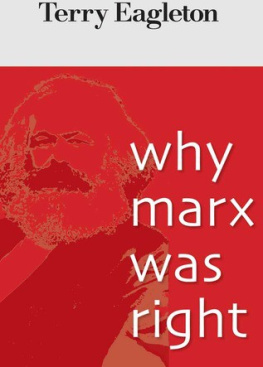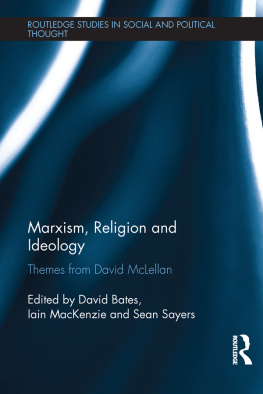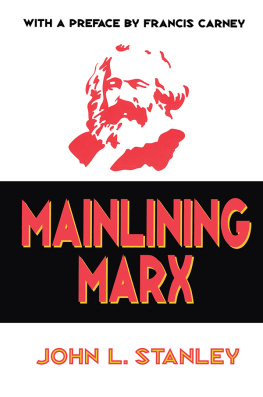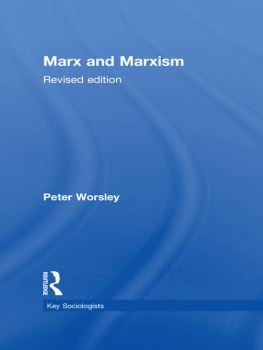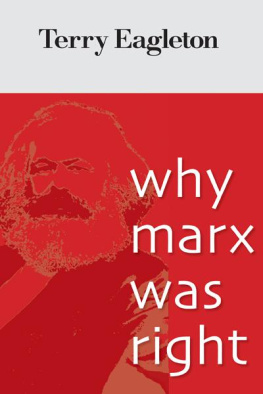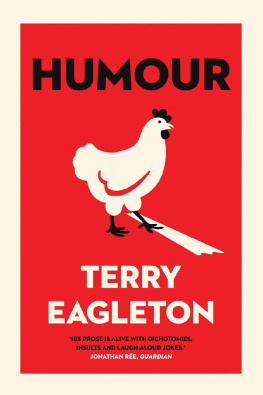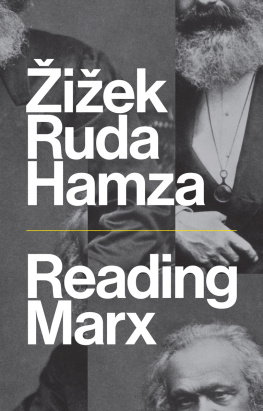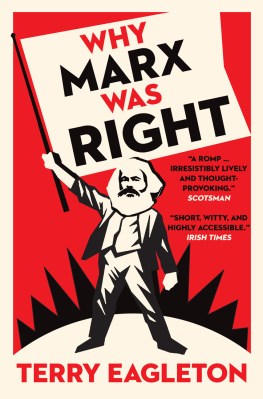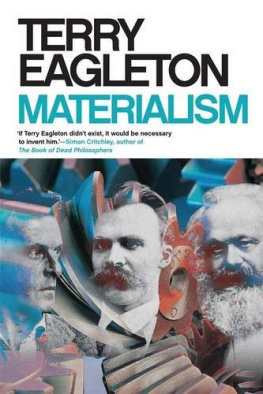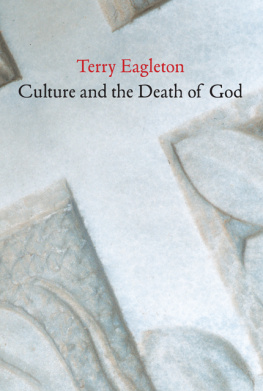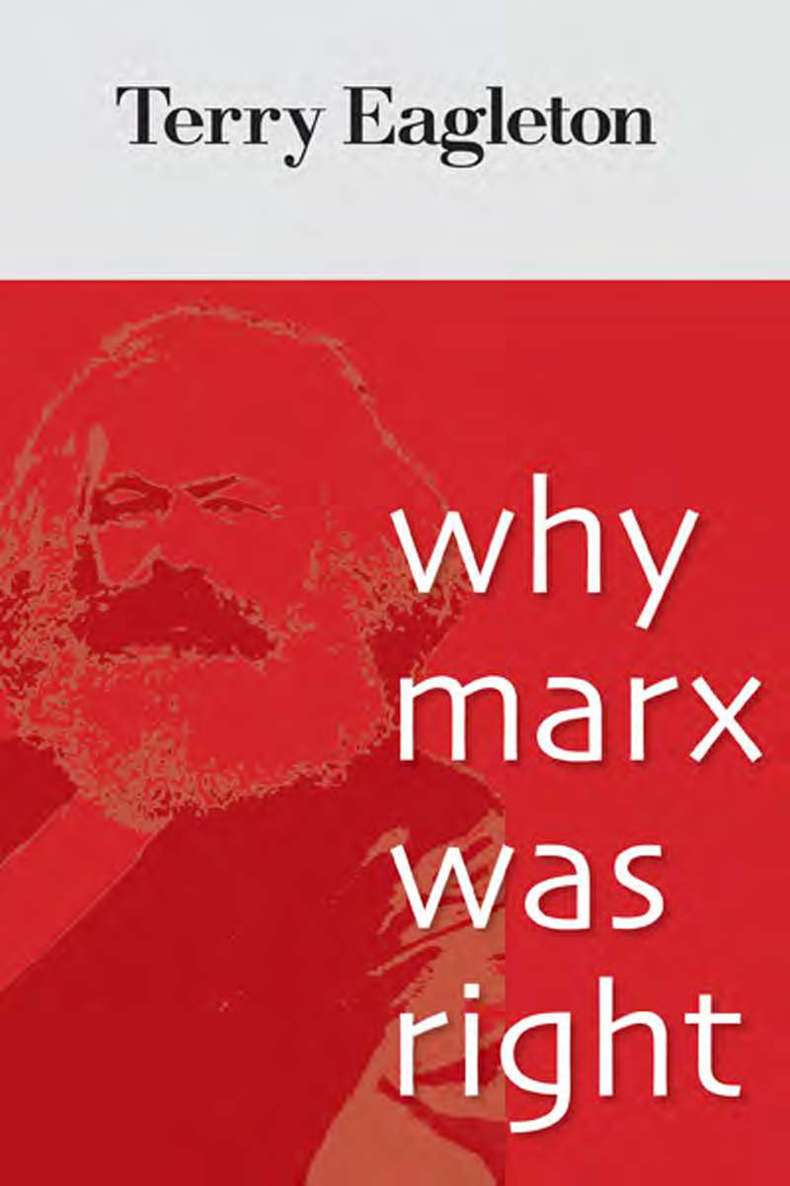
Why Marx Was Right
WhyMarx Was Right
TERRYEAGLETON
UNIVERSITY PRESS
New Haven & London
Published with assistancefrom the Louis Stern Memorial Fund. Copyright 2011 by Yale University. Allrights reserved. This book may not be reproduced, in whole or in part,including illustrations, in any form (beyond that copying permitted by Sections107 and 108 of the U.S. Copyright Law and except by reviewers for the publicpress), without written permission from the publishers.
Yale University Press booksmay be purchased in quantity for educational, business, or promotional use. Forinformation, please e-mail sales.press@ yale.edu (U.S. office) or (U.K. office).
Designed by James J.Johnson and set in Granjon Roman type by Keystone Typesetting, Inc. Printed inthe United States of America.
Library of CongressCataloging-in-Publication Data
Eagleton, Terry, 1943 WhyMarx was right / Terry Eagleton. p. cm.
Includes bibliographicalreferences and index.
isBN 978-0-300-16943-0 (hardcover : alk.paper) 1. Marx, Karl, 18181883. 2. Communism. 3. Capitalism. I. Title. HX 39.5 E 234 2011 335.4dc22
2010041471
A catalogue record for thisbook is available from the British Library.
This paper meets therequirements of ANSI/NISO Z39.481992 (Permanence of Paper).
10 987654321
For Dom and Hadi
Contents
Preface
T his book had its origin in asingle, striking thought: What if all the most familiar objections to Marx'swork are mistaken? Or at least, if not totally wrongheaded, mostly so?
This is not to suggestthat Marx never put a foot wrong. I am not of that leftist breed that piouslyproclaims that everything is open to criticism, and then, when asked to producethree major criticisms of Marx, lapses into truculent silence. That I have myown doubts about some of his ideas should be clear enough from this book. Buthe was right enough of the time about enough important issues to make callingoneself a Marxist a reasonable self-description. No Freudian imagines thatFreud never blundered, just as no fan of Alfred Hitchcock defends the master'severy shot and line of screenplay. I am out to present Marx's ideas not asperfect but as plausible. To demonstrate this, I take in this book ten of the moststandard criticisms of Marx, in no particular order of importance, and try torefute them one by one. In the process, I also aim to provide a clear,accessible introduction to his thought for those unfamiliar with his work.
The Communist Manifestohas been described as ''without doubt the single most influential text writtenin the nineteenth century.''1 Very few thinkers, as opposed tostatesmen, scientists, soldiers, religious figures and the like, have changedthe course of actual history as decisively as its author. There are noCartesian governments, Platonist guerilla fighters or Hegelian trade unions.Not even Marx's most implacable critics would deny that he transformed ourunderstanding of human history. The antisocialist thinker Ludwig von Mises describedsocialism as ''the most powerful reform movement that history has ever known,the first ideological trend not limited to a section of mankind but supportedby people of all races, nations, religions and civilisations.''2 Yetthere is a curious notion abroad that Marx and his theories can now be safelyburiedand this in the wake of one of the most devastating crises of capitalismon historical record. Marxism, for long the most theoretically rich,politically uncompromising critique of that system, is now complacentlyconsigned to the primeval past.
That crisis has at leastmeant that the word ''capitalism,'' usually disguised under some such coypseudonym as ''the modern age,'' ''industrialism'' or ''the West,'' has becomecurrent once more. You can tell that the capitalist system is in trouble whenpeople start talking about capitalism. It indicates that the system has ceasedto be as natural as the air we breathe, and can be seen instead as thehistorically rather recent phenomenon that it is. Moreover, whatever was borncan always die, which is why social systems like to present themselves asimmortal. Rather as a bout of dengue fever makes you newly aware of your body,so a form of social life can be perceived for what it is when it begins to breakdown. Marx was the first to identify the historical object known ascapitalismto show how it arose, by what laws it worked, and how it might bebrought to an end. Rather as Newton discovered the invisible forces known asthe laws of gravity, and Freud laid bare the workings of an invisiblephenomenon known as the unconscious, so Marx unmasked our everyday life toreveal an imperceptible entity known as the capitalist mode of production.
I say very little in thisbook about Marxism as a moral and cultural critique. This is because it is notgenerally raised as an objection to Marxism, and so does not fit my format. Inmy view, however, the extraordinarily rich, fertile body of Marxist writing inthis vein is reason in itself to align oneself with the Marxist legacy.Alienation, the ''commodification'' of social life, a culture of greed,aggression, mindless hedonism and growing nihilism, the steady hemorrhage ofmeaning and value from human existence: it is hard to find an intelligentdiscussion of these questions that is not seriously indebted to the Marxisttradition.
In the early days offeminism, some maladroit if well-meaning male authors used to write ''When Isay 'men,' I mean of course 'men and women.' '' I should point out in similarvein that when I say Marx, I quite often mean Marx and Engels. But therelationship between the two is another story.
I am grateful to AlexCallinicos, Philip Carpenter and Ellen Meiksins Wood, who read a draft of thisbook and made some invaluable criticisms and suggestions.
Why Marx Was Right
ONE
Marxism is finished. Itmight conceivably have had some relevance to a world of factories and foodriots, coal miners and chimney sweeps, widespread misery and massed workingclasses. But it certainly has no bearing on the increasingly classless,socially mobile, postindustrial Western societies of the present. It is thecreed of those who are too stubborn, fearful or deluded to accept that theworld has changed for good, in both senses of the term.
That Marxism is finishedwould be music to the ears of Marxists everywhere. They could pack in theirmarching and picketing, return to the bosom of their grieving families andenjoy an evening at home instead of yet another tedious committee meeting.Marxists want nothing more than to stop being Marxists. In this respect, beinga Marxist is nothing like being a Buddhist or a billionaire. It is more likebeing a medic. Medics are perverse, self-thwarting creatures who do themselvesout of a job by curing patients who then no longer need them. The task ofpolitical radicals, similarly, is to get to the point where they would nolonger be necessary because their goals would have been accomplished. Theywould then be free to bow out, burn their Guevara posters, take up thatlong-neglected cello again and talk about something more intriguing than theAsiatic mode of production. If there are still Marxists or feminists around intwenty years' time, it will be a sorry prospect. Marxism is meant to be astrictly provisional affair, which is why anyone who invests the whole of theiridentity in it has missed the point. That there is a life after Marxism is thewhole point of Marxism.
There is only one problemwith this otherwise alluring vision. Marxism is a critique of capitalismthemost searching, rigorous, comprehensive critique of its kind ever to belaunched. It is also the only such critique that has transformed large sectorsof the globe. It follows, then, that as long as capitalism is still inbusiness, Marxism must be as well. Only by superannuating its opponent can itsuperannuate itself. And on the last sighting, capitalism appeared as feisty asever.
Next page
